Ensure accuracy and efficiency in PCR workflows with labels built to endure extreme temperatures and repeated cycling. Maintain reliable sample identifiers across strip tubes, divisible plates, and high-throughput platforms without relabeling. Our solutions are engineered for clarity under demanding thermal conditions, ensuring every cycle preserves scannability. Support error reduction and enhance traceability by applying durable identification that integrates seamlessly from preparation through amplification.
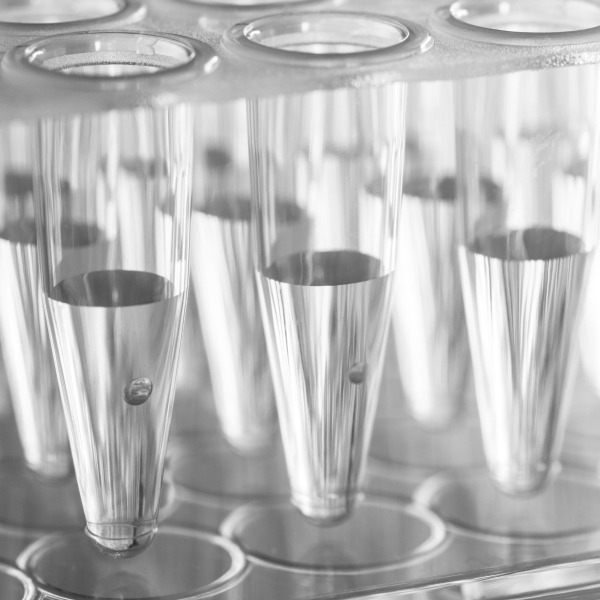
PCR workflows rely on precise sample identification at every stage, from single tubes to high-throughput plates. Labeling solutions must withstand thermal cycling, solvents, and cryogenic storage while maintaining barcode clarity. Options include pre-marked labware, blank label kits, and customized identifiers that safeguard accuracy and streamline laboratory operations.
PCR tubes require durable labeling that resists heat, solvents, and repeated handling.
Advanced marking supports clear identifiers even on small surfaces.
Options include direct marking, color coding, and serialized formats, ensuring accurate tracking throughout PCR cycles and sample workflows.
Strip tubes demand precise identifiers across linked formats, ensuring clarity during batch processing.
Labels and pre-marking improve accuracy for group tracking.
Multiple options include blank labels, pre-printed identifiers, or color coding to simplify sample management during repeated cycles and assay workflows.
Divisible plates require adaptable labeling to maintain clarity when sections separate for assays.
Serialized identifiers track each split portion accurately.
Solutions include pre-marked plates, blank labels, and color-coded formats, maintaining consistency across workflows that rely on flexible plate organization.
PCR plates demand identifiers that withstand cycling, storage, and chemical exposure.
Durable materials protect barcodes and text against repeated use.
Options include pre-marked formats, blank plate labels, or customized ranges, enabling efficient sample management across large-scale PCR studies.
Caps and seals play a vital role in preventing evaporation and contamination.
Specialized labels and markings ensure identifiers remain intact.
Options include color coding, serialized identifiers, and solvent-resistant constructions, supporting traceability and workflow integrity.
Request a sample to evaluate PCR tube, plate, and cap labeling solutions designed for durability, clarity, and consistent workflow performance.
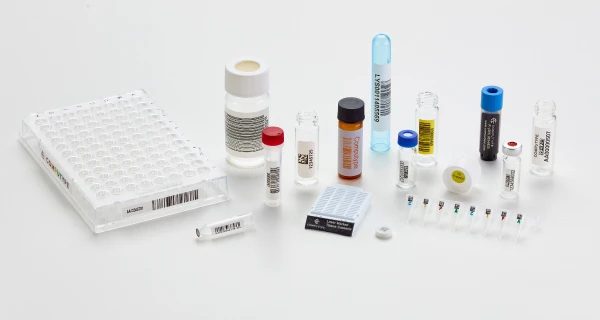
Replace unclear handwriting and fragile notes with durable identifiers engineered for PCR tubes, strips, and plates, ensuring accuracy and preventing relabeling mistakes.
Maintain scannable barcodes through thermal cycling, cryogenic storage, and chemical exposure, protecting PCR results from misidentification or workflow disruption.
Use serialized ranges, color-coded formats, or pre-marked labware to simplify organization, improve throughput, and maintain reliable tracking across high-volume PCR experiments.
PCR experiments require clear, durable identifiers on tubes, strips, plates, and seals. Options include blank labels for in-house printing, pre-barcoded vials and plates for immediate traceability, or custom pre-printed sets for specialized assays. Ordering is straightforward, with solutions tailored to fit workflow demands.

Blank labels engineered for PCR workflows allow in-lab printing of tube, strip, or plate identifiers. Constructions resist freezing, solvents, and rough handling to maintain clear identifiers.
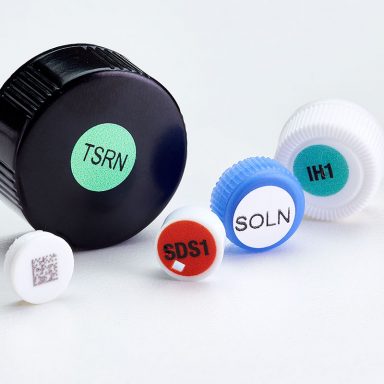
Pre-printed PCR labels provide sharp barcodes, sequences, and color coding. Designs are customized for strip tubes, divisible plates, or microplates, enhancing accuracy and preventing relabeling errors.
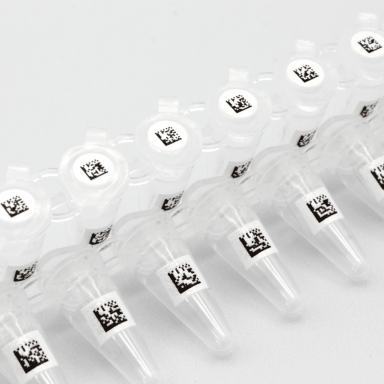
Pre-marked PCR tubes, strips, and plates arrive with permanent barcodes or grad lines. This option eliminates handwriting errors and supports reliable integration with automation.
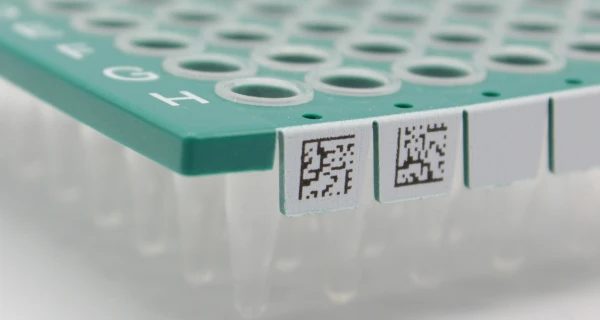
2D Data Matrix barcodes fit on small PCR tubes or divisible strips, maximizing space efficiency while retaining reliable scan performance in compact designs.
Sequential or randomized alphanumeric ranges help track test replicates across multiple plates or strips, supporting sample traceability throughout PCR workflows.
Color bands or printed markers simplify identification of reaction types, batches, or test groups, saving time and reducing sorting errors in high-throughput runs.
When printing labels in-house, reliable printers and applicators keep workflows running efficiently. Thermal transfer printers produce durable images, while automated applicators ensure precise placement on tubes, vials, or plates. Pairing the right equipment with the right labels supports accuracy, reduces errors, and accelerates drug discovery workflows.
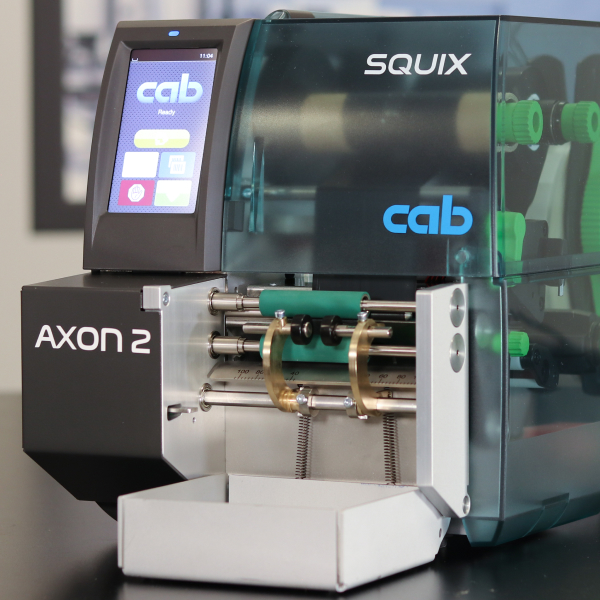
Printing and applying labels in-house requires dependable equipment designed for laboratory demands. Thermal transfer printers deliver crisp, durable barcodes and text for cryogenic, chemical-resistant, and general-use labels. Automated applicators, such as those for tubes or plates, enhance consistency by reducing variability and increasing throughput. Whether labeling high volumes or specialized formats, the right equipment ensures accuracy, speed, and seamless integration into sample processing workflows, while pre-printed labels remain available for labs preferring a ready-to-use solution.
Durable label constructions built for equipment compatibility
Label design and printing software options
Thermal transfer ribbons matched to materials
Durable imaging for harsh environments
Thermal transfer printers create long-lasting identifiers on blank label kits. Combining precision with durability, they produce clear barcodes and text that withstand demanding environments, including cryogenic storage and chemical exposure.
Automated label applicators from providers like cab and Scinomix streamline labeling. Designed for tubes, vials, and plates, these systems improve accuracy, support high-throughput operations, and minimize errors associated with manual labeling.

Fully automated tube labeling system that handles high volumes with precision. Enhances throughput and reduces human error in sample accessioning.
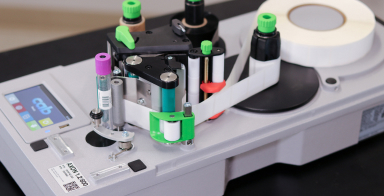
Compact tube labeler designed for lab automation workflows. Supports vertical orientation and robotic handling with precision application.
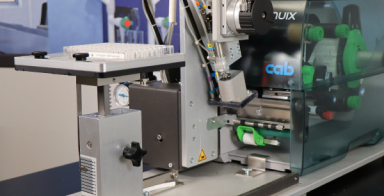
Automated plate labeling system ensuring consistent barcode placement. Ideal for high-throughput laboratories managing extensive plate libraries.

Have questions? We’re here to help.
Contact us to connect with a specialist who understands your industry and can provide the right solutions for your business. Let’s start a conversation.
Take advantage of our volume discounts for bulk orders. Reach out to us for a personalized quote tailored to your needs.
"*" indicates required fields